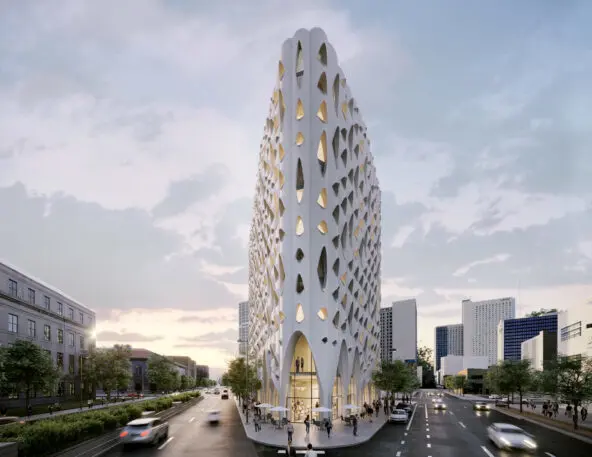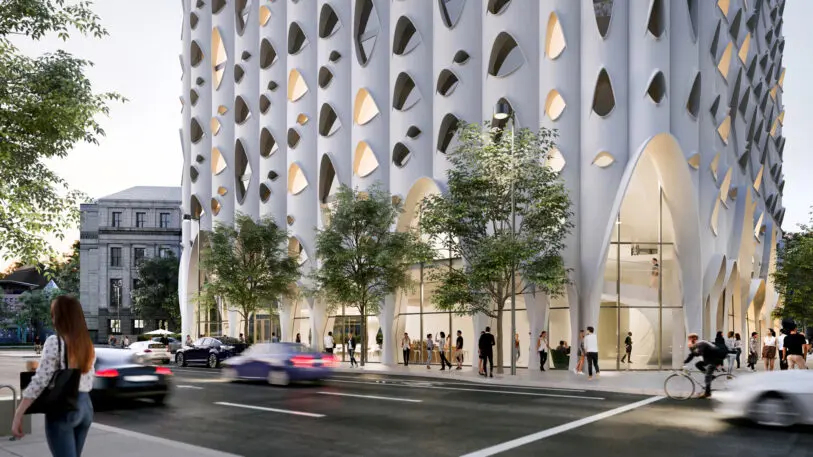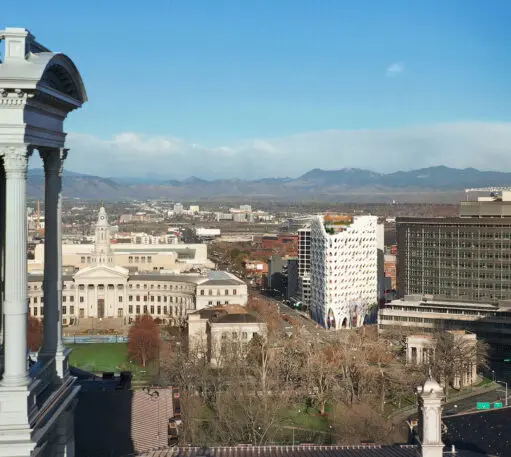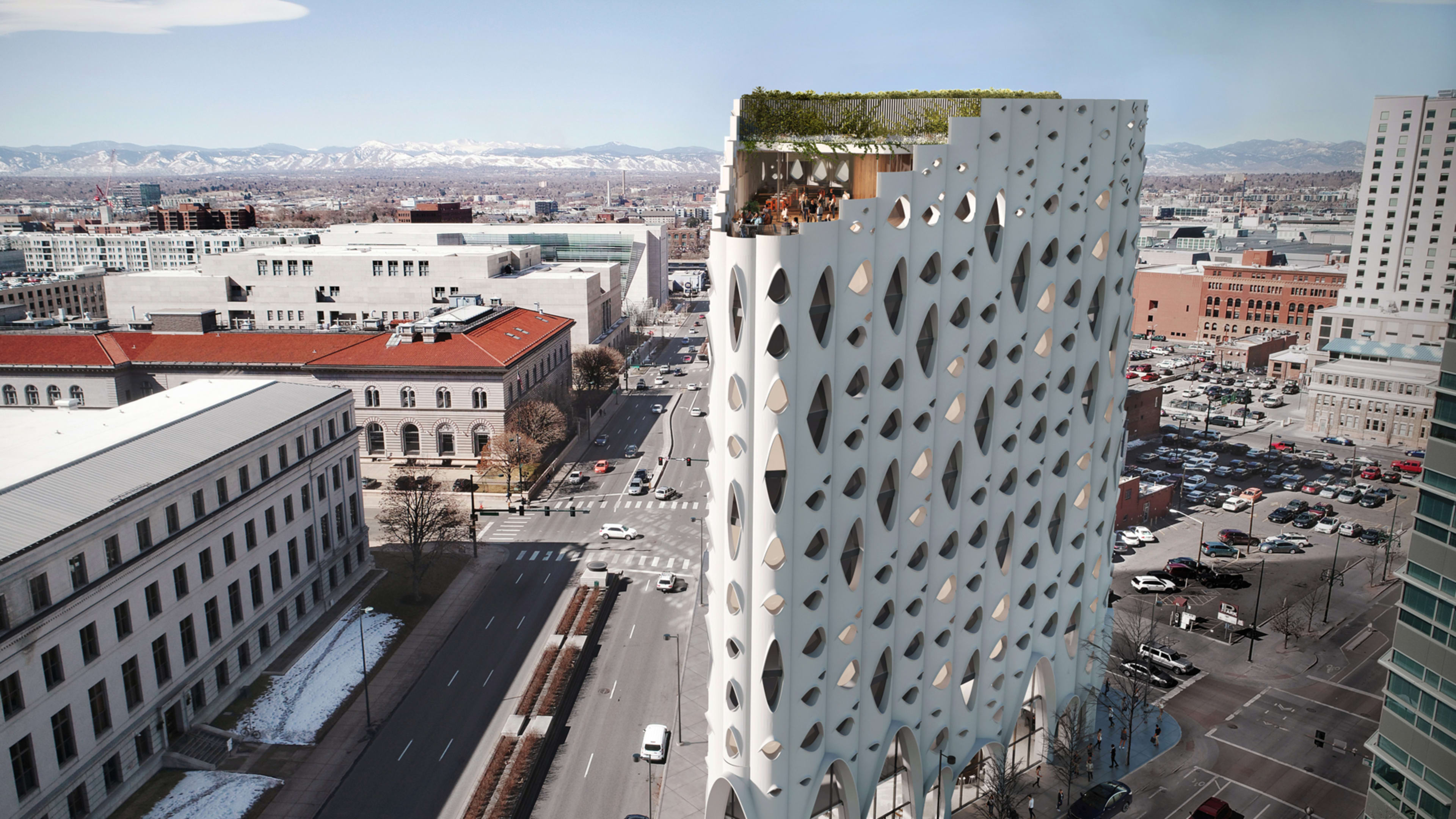When a new hotel, currently under construction in downtown Denver, is completed next year, it won’t have any parking spaces. Instead of driving, guests are expected to take the train from the airport to a transportation hub across the street. It’s just one design feature that will help make it the first carbon-positive hotel in the U.S.—meaning that it’s responsible for capturing more carbon than it produces.
The wedge-shaped hotel, called the Populus, will be sandwiched between streets on a corner that once was the site of the first gas station in Colorado. “There’s some sort of poetic justice there,” says Jon Buerge, chief development officer at Urban Villages, the sustainability-focused developer behind the project. “We’re building the greenest building in Denver, and it has no parking.”

The architecture, from the Chicago-based firm Studio Gang, takes inspiration from Colorado’s native aspen trees, with its windows mimicking the pattern of tree trunks. The deep windows also help naturally shade the hotel rooms, keeping them cool; inside, the windowsills double as seating, helping to replace some furniture in the minimally decorated rooms. The roof includes solar panels, though because there’s little space for them, the hotel will also buy offsite renewable energy.


The company now wants to make all of its new projects carbon positive. “If we’re going to address climate change in any sort of meaningful way, we need to figure out how to build buildings that are responsible and that are giving back more than we’re taking,” Buerge says. “So our goal is to make not only every project we do, but our company itself, carbon positive moving forward. And we want to talk about it because our metric for success is not the handful of projects we build. Our metric for success is in trying to help push the industry in a certain direction.”
Recognize your brand’s excellence by applying to this year’s Brands That Matter Awards before the early-rate deadline, May 3.
